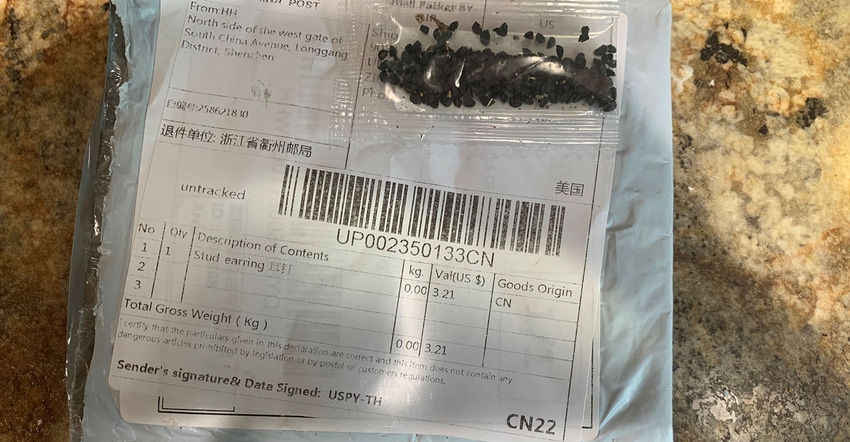September 14, 2020

Remember the mystery seeds that started showing up in people's mailboxes earlier this year? Officials advised people not to plant the seeds and to instead send them to their state departments of agriculture.
Seeds were received by residents in all 50 states.
“We’re uncertain what these seeds may be and why people are receiving these unsolicited packages,” said Denise Thiede, Minnesota Department of Agriculture’s Seed Unit Supervisor, said at the time. States put out press releases advising people where to send the mystery seeds if they received them.
"At this point in time, we don't have enough information to know if this is a hoax, a prank, an internet scam or an act of agricultural bio-terrorism," said Kentucky Agriculture Commissioner Ryan Quarles in July. "Unsolicited seeds could be invasive and introduce unknown diseases to local plants, harm livestock or threaten our environment."
Motherboard's editor-in-chief investigated what happened to those seeds. He found that tens of thousands of Americans received the seeds and at least hundreds of Americans planted them. Some people ate them.
In North Carolina, nearly 1,500 seed packets were received by residents. At least 67 planted the mystery seeds, according to the Raleigh News and Observer.
"The number of seed packets received per person ranged from zero to 30, with one person reporting they ordered craft foam from eBay and found the seeds inside. Several others said they received unsolicited packages containing jewelry, gloves and teeth whitening gel — but not seeds," The News and Observer reported.
USDA has identified some seeds and they include a mixture of ornamental, fruit, vegetable, herb and weed seeds.
USDA's APHIS said the U.S. and China are working jointly to find the source of the mass shipments of unsolicited seeds.
USDA called the mystery seed delivery a "brushing campaign," but the campaign seems to be much larger than any other known brushing campaign, Motherboard reported.
The parallels between the mystery seeds and phishing attacks are unmistakable and can serve as a cautionary tale for employers trying to train employees not to fall for hackers' ploys, according to SCMagazine.
“When we talk about defenses, it’s policies, technical controls and education,” said Roger Grimes of the training company KnowBe4. “If something physical gets in the hands of an end user, you bypass the policies and the technical controls.”
The mystery seed mailing campaign has Amazon making changes. The company will ban the sale of plants and seeds into the U.S., according to The Wall Street Journal.
It will now only allow the sale of seeds from U.S.-based sellers, BBC reported.
About the Author(s)
You May Also Like




